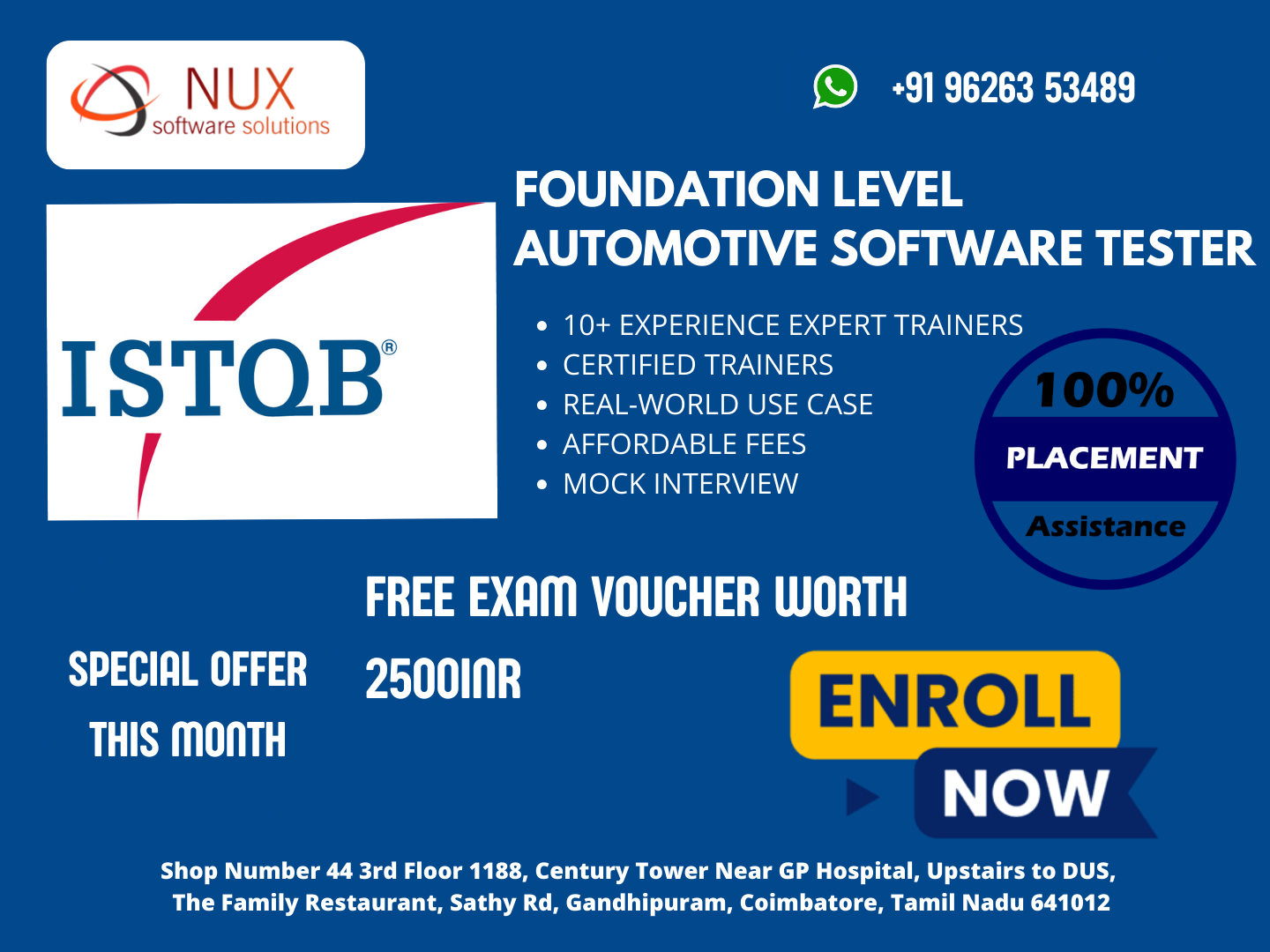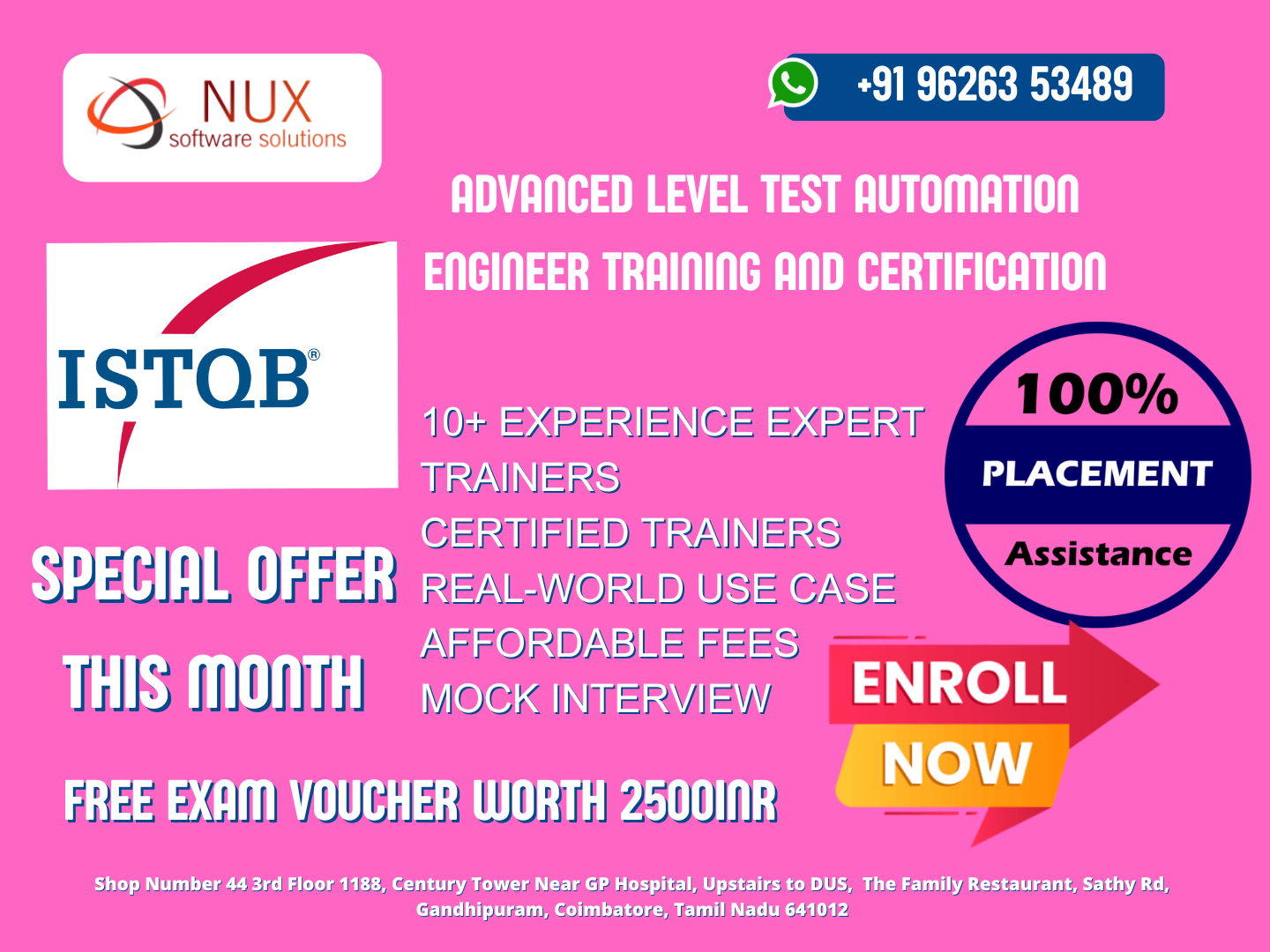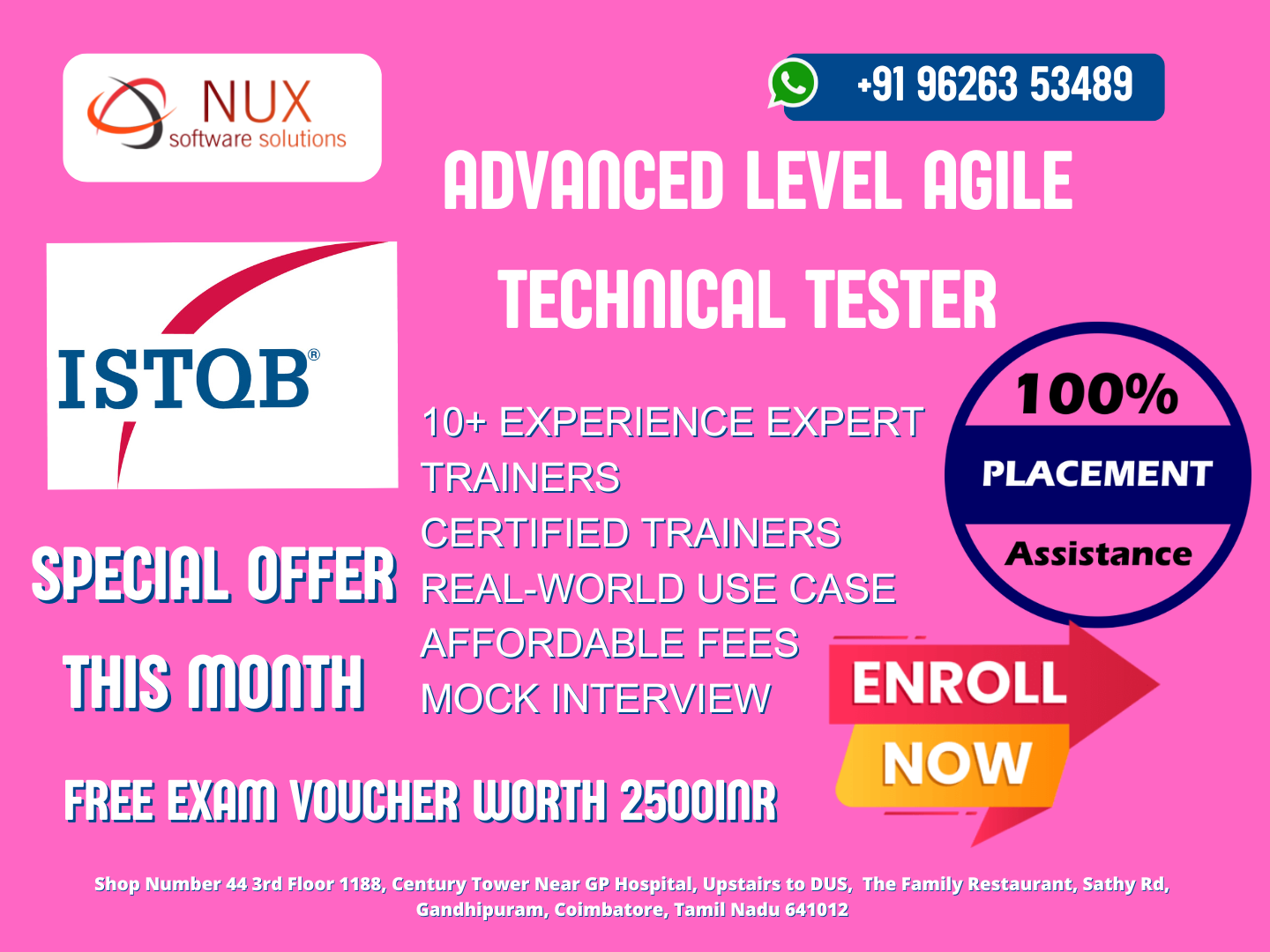Foundation Level Automotive Software Tester


Nux software solutions in coimbatore has excellent and advanced training programs that will give you better performance & hands on experience. Our industry’s expert trainers offer a wide range of skills and experience in their graded areas.
The Training center environment is too good for professional, individual, corporate, live project training and industrial training. Labs infrastructure is advanced, well managed and you can access LAB 24X7 from anywhere. Training center has international expert trainers and they have excellent knowledge, real time industry experience.
Our Training programs combine with several innovative learning methods and delivery models. We understand your requirement and it will give you 100 percent growth for your career and provide the cost effective training programs and also work with flexibility for the trainees.
This Foundation level Automative Software Tester course is designed to teach participants the essentials of usability and how to effectively evaluate usability, user experience and accessibility. You will learn how to plan and prepare for usability testing and select the most appropriate testing location and participants. After understanding the application of usability reviews, testing and surveys you will be able to propose the most effective usability testing approach.
Testers, test analysts, test engineers, test consultants, test managers, user acceptance testers, and software developers working on usability issues will find this course useful, informative, and fun. We suggest that attendees hold the ISTQB Foundation Level certificate, especially if they intend to take the ISTQB Usability Tester exam, but non-certificate holders can benefit from the course.
Course Syllabus
Module
1.0 Introduction
1.1 Requirements from divergent project objectives and increasing product complexity
1.2 Project aspects influenced by standards
1.3 The six generic phases in the system lifecycle
1.4 The contribution/participation of the tester in the release process
2.0 Standards for the testing of E/E systems
2.1 Automotive SPICE (ASPICE)
2.1.1 Design and structure of the standard
2.1.2 Requirements of the standard
2.2 ISO 26262
2.2.1 Functional safety and safety culture
2.2.2 Integration of the tester in the safety lifecyle
2.2.3 Structure and test specific parts of the standard
2.2.4 The influence of criticality on the extent of the test
2.2.5 Application of content from CTFL® in the context of ISO 26262
2.3 AUTOSAR
2.3.1 Objectives of AUTOSAR
2.3.2 General structure of AUTOSAR
2.3.3 Influence of AUTOSAR on the work of the tester
2.4 Comparison
2.4.1 Objectives of ASPICE and ISO 26262
2.4.2 Comparison of the test levels
3.0 Testing in a virtual environment
3.1 Test environment in general
3.1.1 Motivation for a test environment in the automotive development
3.1.2 General parts of a test environment
3.1.3 Differences between Closed-Loop and Open-Loop
3.1.4 Essential interfaces, databases and communication protocols of a electronic control unit
3.2 Testing in XiL test environments
3.2.1 Model in the Loop (MiL)
3.2.2 Software in the Loop (SiL)
3.2.3 Hardware in the Loop (HiL)
3.2.4 Comparison of the XiL test environments
4.0 Automotive-specific static and dynamic test techniques
4.1 Static test techniques
4.1.1 The MISRA-C: 2012 Guidelines
4.1.2 Quality characteristics for reviews of requirements
4.2 Dynamic test techniques
4.2.1 Condition testing, multiple condition testing, modified condition/decision testing


